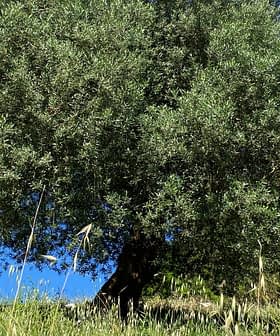On January 21, the Italian minister of agriculture, Maurizio Martina, organized a meeting to take stock of the situation in the Italian olive oil sector, for which 2014 was a disastrous year.
The meeting was also attended by the regional commissioners for agriculture and the main stakeholders of the Italian olive oil supply chain.
One of the objectives of the meeting was to define a long-term strategy against counterfeit “Made in Italy” oil and strengthen “interventions,” or the financial resources to support producers.
The Central Inspectorate for the protection of quality and fraud prevention of food products (ICQRF) has been working to carry out controls at all Italian ports to track transfers to production plants and, all the way to the points of distribution and sale, the minister reported.
ICQRF uses advanced chemical laboratories to analyze oils through official European panels. The Financial Police, the Forest Guard and the anti-adulteration unit of Carabinieri are involved in anti-fraud controls.
The ministry’s report on the 2014 oil campaign said there were 452 “irregular” operators out of 4,114 checked.
6,004 products were checked, 569 (9 percent) of which were found to be against regulation; 1,195 samples were analyzed, 66 (6 percent) of which were declared as irregular.
There were 140 administrative penalties levied, and 122 seizures which had a total value of €9,778,000 ($11,132,302).
In order to support the olive growers, in October 2014 Europe approved €1.4 billion for damages caused by the pests and bad weather during the “annus horribilis,” as the 2014 harvest is often called here, including €100 million ($114 million) over the next three years to Italian producer organizations.
The minister also allocated yearly increments of €70 million ($79.7 million) until 2020 to improve the yield and quality of Italian olive groves.
There were positive comments from the meeting participants, the most important of which were Assitol (the Italian association for the olive oil industry) and Federolio (the national federation of oil traders).
On a joint statement Assitol president Giovanni Zucchi and Federolio president Giuseppe Masturzo said: “We are very satisfied with the initiative of Minister Martina thanks to whom, for the first time in many years, an important goal of Assitol and Federolio has been achieved: bringing together around a table all the players in the Italian olive oil supply chain to discuss how to re-establish and re-launch a core sector for the Italian agriculture and the entire economy.”
“Each of the stakeholders can make a valuable contribution to the definition of a new oil supply chain agreement,” Zucchi and Masturzo added. “Thus promoting a deep transformation of the oil sector, by using new resources, and improving the competitiveness of olive growing, the modernization of oil production and the protection of its quality. Actually, these are the major issues on which we will play the future of the Italian oil industry.”








